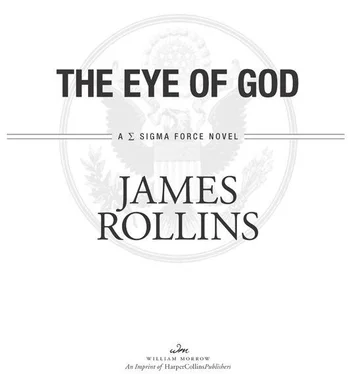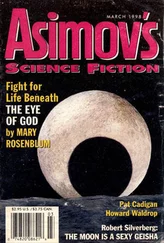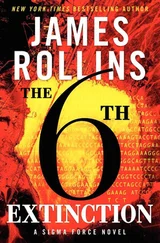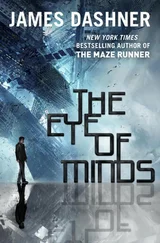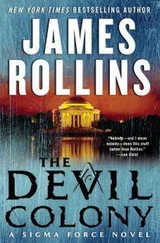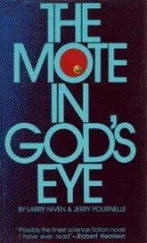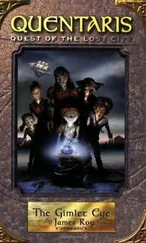Once across the border, the pair of buses had slowly trundled the winding mountain roads, working their way south toward the capital city. Four hours later, Pyongyang came into view, sprawled in the flatlands beyond the hills. After the bustle and dazzling lights of Hong Kong, the city ahead looked deserted and dark. Shadows of skyscrapers stood silhouetted against the night sky. A few monuments glowed in the darkness, along with a handful of streetlamps and windows, but little else. Nothing seemed to be moving, like a city frozen in time.
A figure stirred in the seat ahead of Gray, straightening and noting his attention. “It is a sad testament,” Guan-yin said, looking as though she’d not slept at all, worry for her daughter shining in her eyes. “The residents of Pyongyang are only allowed three hours of electricity a day. So it must be used sparingly.”
As they headed toward the city, traveling along a four-lane highway, not a single vehicle was seen. Even as they reached the outskirts, they found no other cars on the streets; even the traffic lights were dark. A hush fell over the bus, as if they were all afraid to disturb the ghosts of this seemingly deserted town.
The first sign of life was a lone military vehicle circling slowly in the front of a massive well-lit building.
“That’s the Kumsusan Palace of the Sun,” Guan-yin whispered. “It was once the official residence of President Kim Il-Sung. After his death, it now serves as his mausoleum, where his embalmed body lies in state inside a glass sarcophagus.”
Just one example, Gray thought, of the elaborate cult of personality promoted by the state, where Kim Il-Sung and his descendants were worshipped as gods.
As the tomb vanished behind them, Guan-yin scowled darkly. “Some estimates put the mausoleum’s construction at close to a billion dollars . . . all while the people of North Korea starved.”
Gray knew the death of Kim Il-Sung in the midnineties coincided with a nationwide famine, where almost 10 percent of the population died. It became so bad at the end that cannibalism broke out in rural areas. Children were warned not to sleep in the open.
And life here had grown little better for the people of North Korea.
Under strict sanctions, the country still could not feed itself. The entire infrastructure of North Korea continued to operate on a shoestring budget. Even its factories had a hard time running due to a lack of spare parts and a scarcity of electricity.
The only industry still going strong was political theater.
Outside the bus window, canyons of dark apartment buildings spread far and wide. The only bits of brightness to break up the monotony were tall billboards and murals. But none of them advertised colas, beers, or the latest electronics. Instead, they all featured various versions of their Supreme Leader’s beneficent countenance.
As the pair of buses turned onto an empty six-lane road, their goal loomed into view: the Ryugyong Hotel. It was the tallest building in all Pyongyang. It looked like a glass rocket ship rising up on three wings. It towered a hundred stories over the city. But like the rest of the city, it was also dark. Only the lobby level and a scatter of lit windows indicated any sign of life.
The plan was to use the nearly deserted hotel as a staging ground. Through Guan-yin’s resources and heavy-handed use of bribes, they had discovered that a woman matching Seichan’s description had been taken to a military kyohwaso, a reformatory prison, a few miles outside of the capital city.
In a poor country where corruption ran rampant, money talked.
Here at the hotel, they would all change into North Korean military uniforms and arm themselves. At two in the morning, an empty military transport truck would be abandoned near a service exit of the hotel, courtesy of Guan-yin’s largest bribe. They would then use the truck and the uniforms to lead an assault on the camp in the dead of night.
Reaching the hotel, the lead bus rolled around the circular entrance and passed under the massive porte cochere.
Gray’s vehicle followed.
The hotel had partially opened a few months ago after a plague of problems and delays. Its construction had stretched over twenty years, the building standing empty and dark for all that time, a bitter metaphor for the capital city itself. It was why the place had earned its nickname in the press.
The Hotel of Doom .
Gray prayed that name did not prove true in the coming hours ahead.
Unfortunately, he didn’t have to wait even an hour.
As the first bus braked to a stop, a surge of men in military uniforms poured out of the lobby, weapons bristling, shouting angrily. Behind them, lights flared as military jeeps raced out of hiding to close off the driveway behind them.
They had rolled straight into a trap.
7:33 P.M.
Ju-long Delgado stood before a window looking into the next room. He studied the assassin strapped to the interrogation chair, a device straight out of the Spanish Inquisition. She had been stripped to bra and panties as a psychological ploy to make her feel vulnerable. Each limb was secured separately in thick cuffs, allowing the hinged chair to twist the victim’s body in countless painful stress positions.
Currently she was bent backward, straining her spine, pulling on her hip and shoulder joints. She’d been in that position for the past three hours.
To make her more pliant, Hwan Pak had said, willing to bend.
The scientist had laughed much too loudly at his feeble joke, snorting through his bandaged broken nose. He plainly wanted revenge, to soothe his wounded pride. To that end, he intended to hurt her as he had been hurt.
The position must certainly be agonizing. The room was frigid, but sweat glowed across her bare skin, a shining testament to the pain. Delgado imagined her grimacing, teeth grinding, but her head was covered in a tight hood, with sound-dampening earphones in place, limiting her senses, making her focus only on the pain.
The North Koreans knew what they were doing.
And from the gaunt half-starved souls he’d seen moving listlessly about the packed camp, they were no kinder to their own people. Prisoners were crammed forty to a room, each space no larger than a double-car garage. He had watched a pair of men fighting over a dead body, to see who would win the right to bury it, all in order to earn an extra supplement of food.
It was a North Korean version of Auschwitz.
Ju-long’s phone chimed in his pocket. He removed it, guessing it was an update from the Ryugyong Hotel. Tomaz had traveled there with the strike team.
Instead, a softer voice answered, “Ju-long . . .”
He smiled, some of the tension ebbing. “Natalia, my love, why are you calling? Is everything all right?”
He pictured her full belly, holding his son.
“I just wanted to hear your voice before I fell asleep,” she said, her voice muffled at the edge of slumber. “I miss your warm body next to me.”
“This will be the last night your bed will be empty. I promise I’ll be home by tomorrow afternoon at the latest.”
“Mmm,” she mumbled sleepily. “Don’t break your promise.”
“I won’t.”
They said their good nights and good-byes.
As he pocketed his phone, he stared at the tortured woman in the neighboring room, feeling a twinge of guilt. But he had been paid well to soothe such pangs. With the deal done, he would return to Macau tomorrow morning.
He would have left that very night, but he had gotten word earlier of Guan-yin’s escape from the fiery destruction of her Triad’s stronghold. He had also learned that the Americans had survived, hearing of their high-flying trapeze work to escape the flames. Then just half an hour ago, further intelligence filtered in from various sources suggesting that not only was Guan-yin in North Korea, but she intended to attack this base.
Читать дальше
